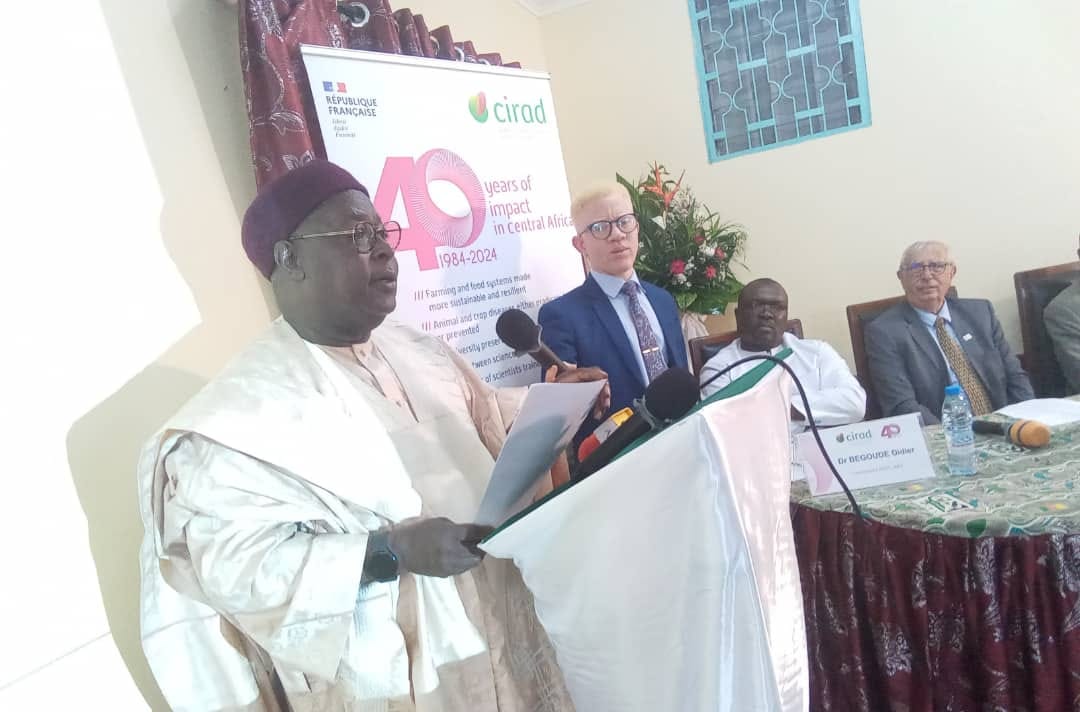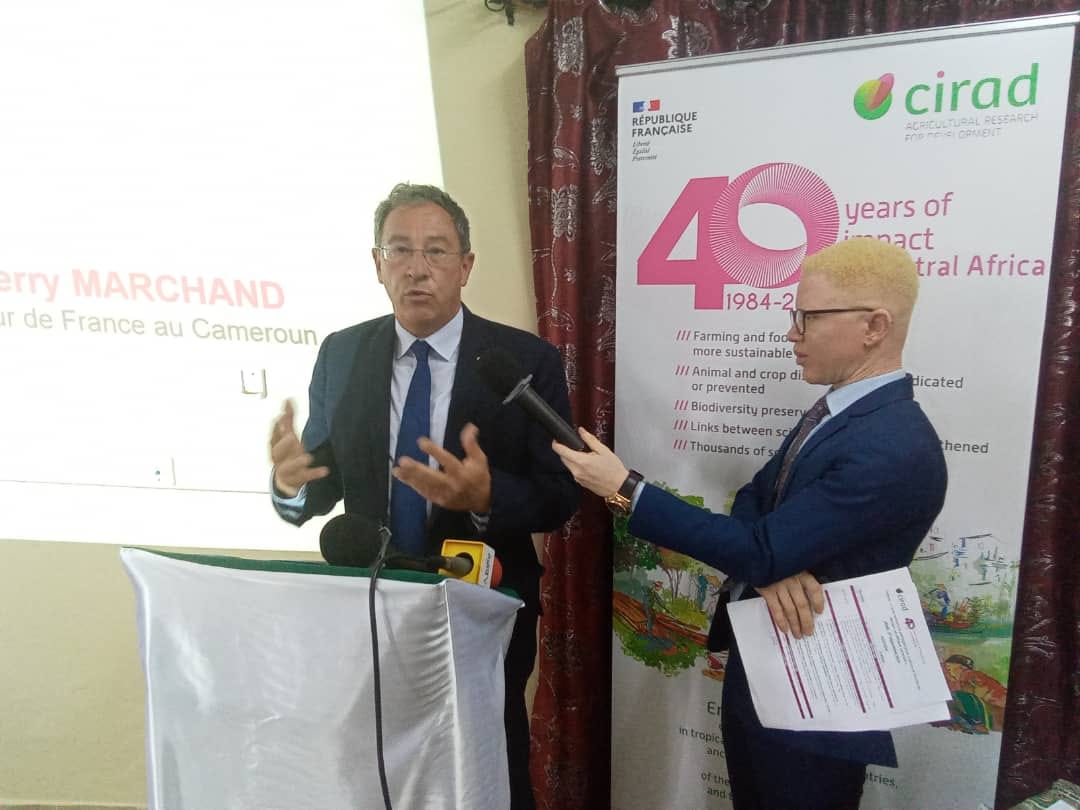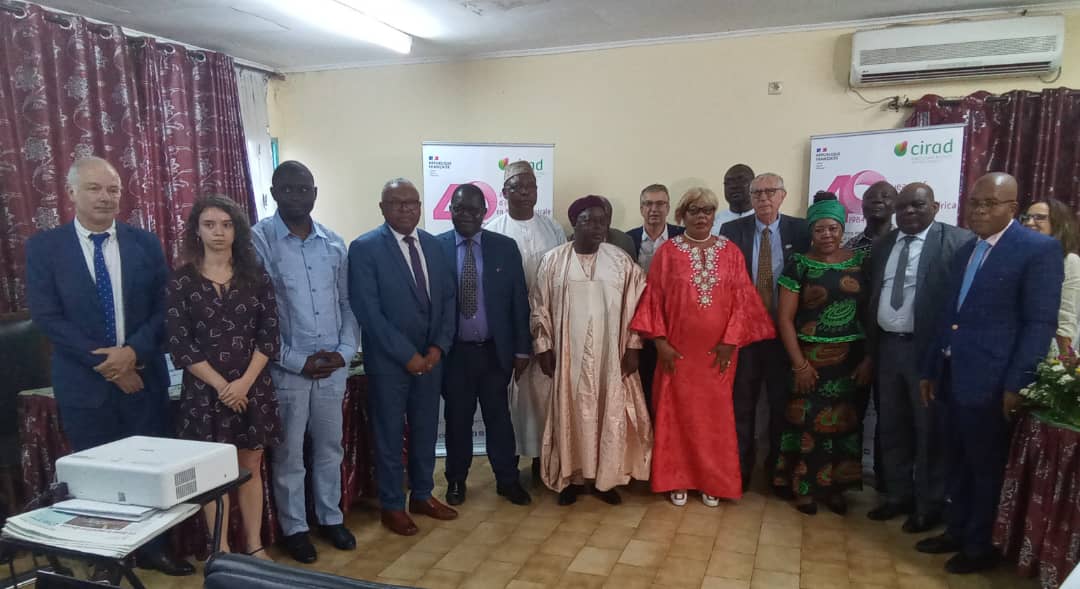
Photo : Dr NOE WOIN, the Director General of IRAD
On the occasion of the 40th anniversary's celebration of the existence of the Centre for International Cooperation in Agricultural Research for Development (CIRAD), on 17 September 2024 in Yaounde (Cameroon), under the evocative theme: «A shared research to cultivate the world of tomorrow», the Director General (DG) of the Institute for Agricultural Research for Development (IRAD), Dr Noé WOIN, recognizes that CIRAD has remained the historical and privileged partner of the National System of Agricultural Research of Cameroon, Contributing significantly and playing a key role in building the capacity of IRAD’s scientific and technical staff.

Photo : H.E THIERRY MARCHAND, the Ambassador of France to Cameroon.
Here is an extract from the DG’s speech, in the presence of the Secretary-General of the Ministry of Scientific Research and Innovation (MINRESI), Pr Rebecca Madeleine ETAMÉ EBELLÈ, the Ambassador of France to Cameroon, H.E. Thierry MARCHAND, the CIRAD Regional Director for Central Africa, Dr Thierry LEROY, and the heads of development partners in Cameroon:
“As part of agricultural experimentation in a colonial economy, CIRAD’s action in Cameroon is now essentially oriented towards inclusive and sustainable agriculture and food systems, Resilient to global change and respectful of the vast environmental resources of the Congo Basin, of which Cameroon is a part. It is about developing sustainable production systems based on agroecology and agroforestry. The activities carried out under the Agroforestry and R2FAC Partnership Research Schemes by research teams including researchers from CIRAD and IRAD will be presented to you, with many outstanding results.

At the same time, CIRAD’s research teams are working with IRAD to find concrete solutions to current challenges by addressing issues such as those related to the effects of climate change, ecological transitions, and population health (the “One health” approach) or the use of artificial intelligence in agriculture.
Following the environmental and health crises that Central Africa is facing today, agricultural research will have to adapt and innovate constantly.
There is no doubt that this partnership between IRAD and CIRAD will enable them to continue to “cultivate the world of tomorrow” and thus reap more fruits in the coming years, in a win-win partnership.”
Communication Unit
